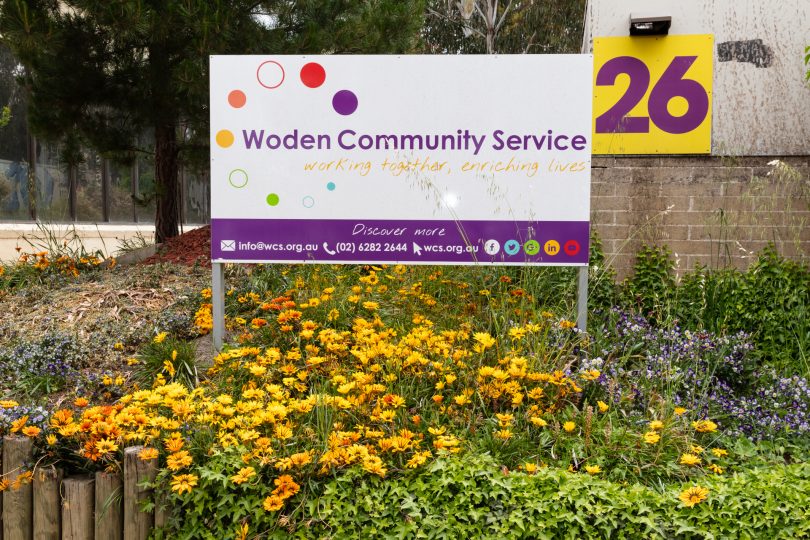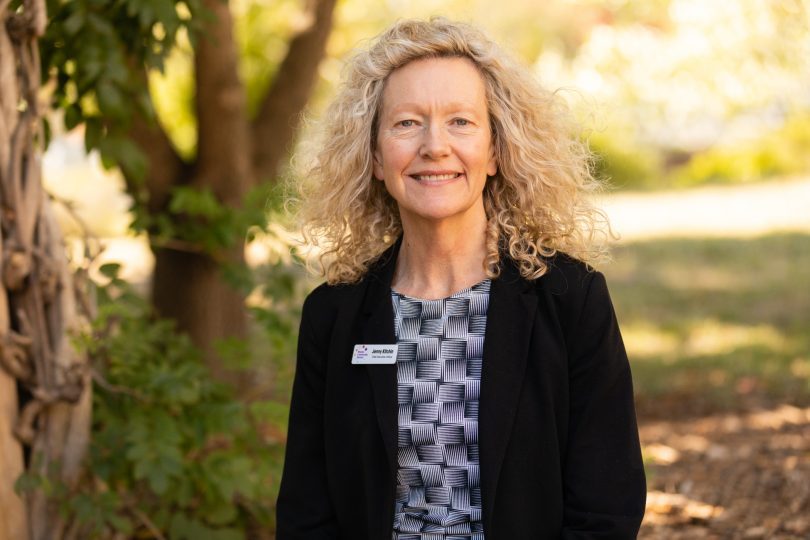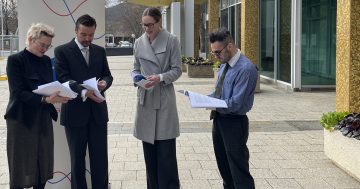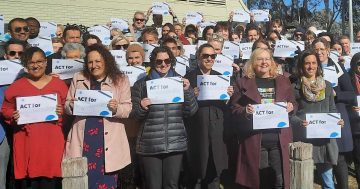
A recent report has highlighted the unsustainability of the current funding model in place for the community sector. Photo: Thomas Lucraft.
The current model of funding community organisations in the ACT is unsustainable, with a quarter of organisations saying they price services below cost when tendering for contracts, and half are losing money on government-funded programs.
These shortcomings were highlighted in the Territory-funded Counting the Costs report from the UNSW’s Social Policy Research Centre.
According to the report, problems with the funding model are being exacerbated by increasing demand for community services, “including rising housing and living costs and the mental health and economic impacts of the COVID-19 pandemic”.
The report says community sector costs have historically been hidden for many reasons, including an expectation that the sector can supplement shortfalls in government funding.
These shortfalls lead to poor outcomes, such as incurring losses on government-funded programs or offering services at below cost to ensure they remain competitive.
Two-thirds of organisations had decided not to apply for funds to deliver services because available funding was insufficient to cover actual costs.

Woden Community Service CEO Jenny Kitchin said there is a balance between winning a tender and receiving adequate financial compensation. Photo: Danielle Jukic.
Woden Community Service CEO Jenny Kitchin said she understands the pressure of wanting to win a government tender.
“You think you can best deliver the program and make an impact to help those most vulnerable and accurately charge for your services,” Ms Kitchin said, but when government funding for a particular program doesn’t cover the costs, organisations have to cross-subsidise.
“It’s a really difficult decision, particularly for smaller organisations who don’t have the capacity to cross-subsidise if they need to.”
She noted it’s also challenging when tenders come up for programs that a particular organisation might specialise in.
“We might be well-placed to do it, but sometimes it’s really difficult to find the funds.”
“It really needs to be addressed,” Ms Kitchin explained.
If the issue isn’t resolved, she said the outlook is bleak for the community sector as large for-profit entities will fill the space they can’t.
“That may be at the expense of quality and expertise, and you lose the real community face of an organisation that has grown up in Canberra.”
ACTCOSS CEO Dr Emma Campbell said it’s simply not sustainable for the community sector to run essential services such as mental health support, community legal support or domestic violence services without sufficient funding to cover costs.
“A sustainable funding model is desperately needed,” she said.
“Workers in the community sector continue to do an amazing job delivering essential services, including during the COVID-19 pandemic.”
Dr Campbell said resource constraints in the sector also lead to increasing rates of staff burnout as employers are forced to turn people away.
The report found three-in-five community sector organisations are deciding not to apply for ACT funds due to poor cost coverage, which Dr Campbell said will adversely affect the ACT’s ability to recover from the pandemic as organisations will be unwilling to deliver services.
The ACT Government has committed to working with the community sector to develop a more sustainable funding model – a commitment welcomed by Dr Campbell.
“We commend the ACT Government’s support for the project and its openness to this rigorous analysis of the gap between costs incurred and funding received,” she said.
Minister for Community Services Rachel Stephen-Smith acknowledged the numerous issues raised by the report.
“There are big picture issues [raised] around the feminised workforce of the non-government sector … we know there is a genuine gender pay gap across our society,” she said.
“There are also issues with the way that competitive tendering has worked in the non-government sector in the way that it’s tended to encourage NGOs to not factor in the full cost of their service delivery because they are so keen to win the tender.
“Of course, governments have been keen to get what seemed to be the best value for money but haven’t really looked closely to ensure the fundamentals could be delivered.”
Ms Stephen-Smith noted despite a $4 million increase in community sector funding committed to in the recent Territory budget, there was still “more work to do”.
She said the report’s recommendations and findings would be carefully considered and used to inform future policy.
The report made several recommendations, including reviewing indexation calculations to ensure funding remains in step with rising costs and reviewing all existing funding agreements.
It also recommended that the sector capacity is boosted to more accurately assess the cost of services when applying for tenders and that funding in areas of high need should be increased.





















